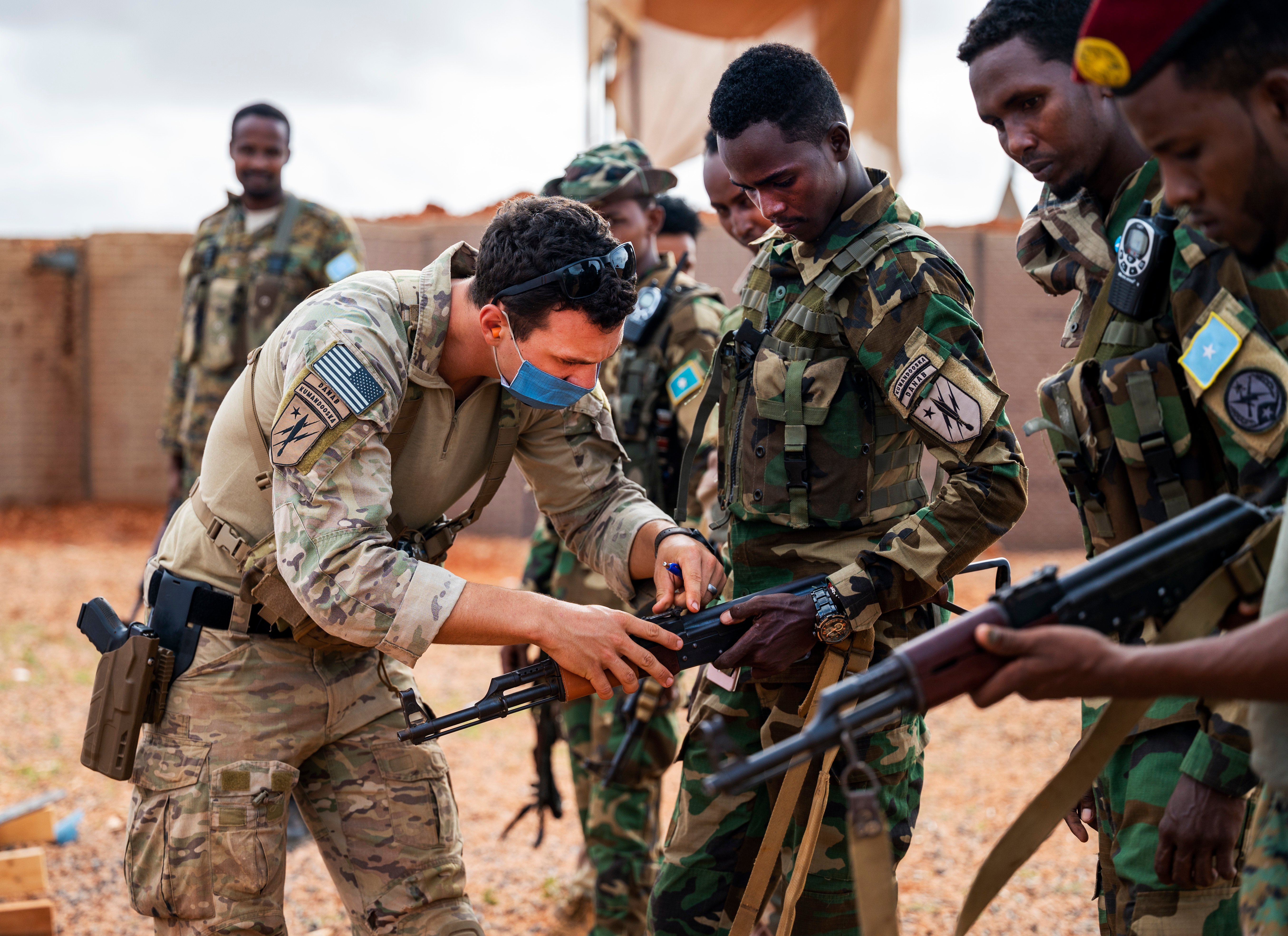
After leaving Somalia in December, U.S. forces are “commuting to work” from other parts of Africa and Europe to combat the rising terrorist threat in Somalia and across the region.
Army Gen. Stephen Townsend added, “there’s really no denying” that the Trump administration’s sudden decision in December to pull most U.S. forces out of Somalia raised the level of risk across the Horn of Africa. Al Shabab, a terrorist organization, continues to attack Somali forces, African Union and European Union security forces, as well as civilians. Most recently, car bomb attacks on a military base in central Somalia claimed 30 lives.
Townsend declined to say what his recommendations were to the Pentagon as it wraps up its ongoing global posture review. He did say at an online event Tuesday that “the best way” to help the Somali government and its security forces “is to be side-by-side.”
Speaking at the European Union Washington Forum hosted by the Center for Strategic and International Studies, French Vice Adm. Herve Blejean, director-general of the E.U. military staff, said “the war is far from over” in Somalia, as al Shabab moves relatively freely about the country.
“We have to help the Somali armed forces gain mobility” in the fight,” he said, adding that “face-to-face” contact is the best way to assist.
Blejean said trends “are not going in the right direction” across Africa’s Sahel region to the Horn of Africa, as the effects of climate change are felt in growing deserts in some parts of the continent and wild floods in others. “Terrorists can easily recruit” as economic conditions worsen and their success is not based on ideology, but by offering steady pay and food.
Adding to the impact climate change is having on local economies are ethnic tensions, military coups toppling governments in several nations and lingering anger over disputed outcomes in presidential elections, the two officers said.
“The spread of terrorism has continued relatively unabated” from the Sahel eastward, Townsend said. He noted the United States military is in a supporting role in Africa, first providing support to African nations when they ask for assistance, and also to the E.U., particularly the French.
The other major powers – Russia and China – aren’t ignoring the continent. Blejean said their operations and goals in Africa are markedly different.
“China tailors its support to each country,” identifying what that nation most wants. He said the problem comes for the borrowing nations, when payments fall due on the new ports, highways, airports and telecommunications networks.
The United States and the E.U. “aren’t going to compete with China on infrastructure,” Townsend said, but they do offer transparency in all transactions. His advice to African nations is “have your eyes and ears open” when dealing with China.
Moscow, on the other hand, is far more heavy-handed when it comes to Africa. Russia is “very self-interested and exploitative,” Townsend said. He was referring to the operations of the Wagner group in Libya and Central African Republic. The U.N. has accused a private military contractor, which is working with CAR national security forces, of war crimes in the Central African Republic and prolonging the Libyan civil war.
The Russians “are not there to give money,” Blejean said about their presence on the continent. The activities of the mercenaries “are a pain in the neck for us” in the Central African Republic, and they are “happy with that.”
The French officer said he most recently met with the republic’s president, Faustin-Archange Touadera, and told the leader he “has to change his model” of governing that tolerates these atrocities and risks losing its natural resources to Russian mining interests.
Looking at the supporting role the United States and E.U. play in aiding African security forces, Townsend and Blejean said there are differences with other regional training missions. For example, Somalia and Mali are actively engaged in fighting terrorist groups. Their security forces’ goal now is “to fight and win the war.”
Townsend said joint exercises like Flintlock 2020 in Mauritania provide African security forces an event to share best practices and build interoperability among a “sort of a coalition of the willing and like-minded.” The exercise has a special operations focus.
“The added value is [building] the cohesion of the African countries,” Blejean said of exercises like Flintlock.





